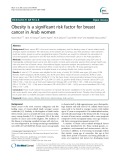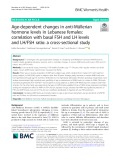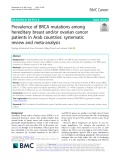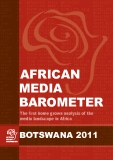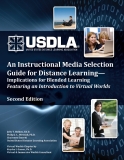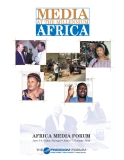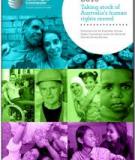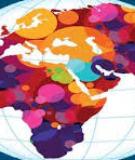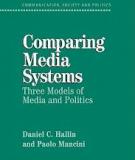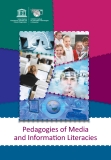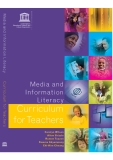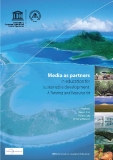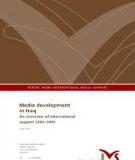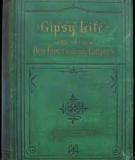
Arab women
-
The Mini-Mental Adjustment to Cancer Scale (Mini-MAC) instrument is commonly used worldwide by professionals of oncology, but the scale has not, up to date, been validated in Arabic and Moroccan context, and there is an absence of data in the Moroccan population. This study aims to validate the Mini-MAC, translated and adapted to the Arabic language and Moroccan culture, in women with breast cancer.
 12p
12p  vimahuateng
vimahuateng
 26-11-2021
26-11-2021
 16
16
 1
1
 Download
Download
-
Breast cancer (BC) is the most common malignancy and the leading cause of cancer-related death amongst women worldwide. The risk factors of this disease are numerous, and their prevalence varies between racial and ethnic groups as well as geographical regions.
 10p
10p  vilisa271
vilisa271
 22-09-2020
22-09-2020
 11
11
 1
1
 Download
Download
-
To investigate the age-dependent changes in circulating anti-Müllerian hormone (AMH) levels in healthy Arabic-speaking Lebanese women, and to correlate changes in serum AMH levels with serum FSH and LH values, and LH/FSH ratio.
 6p
6p  vitokyo2711
vitokyo2711
 31-08-2020
31-08-2020
 14
14
 2
2
 Download
Download
-
Breast cancer is one of the most common cancer and a leading cause of death in women. Up to date the most commonly used breast cancer cell lines are originating from Caucasians or Afro-Americans but rarely cells are being derived from other ethnic groups. Here we describe for the first time the establishment of a naturally transformed breast cancer cell line, KAIMRC1 from an Arab woman of age 62 suffering from stage IIB breast cancer (T2N1M0).
 13p
13p  vimanama2711
vimanama2711
 30-07-2020
30-07-2020
 11
11
 2
2
 Download
Download
-
To systematically assess the prevalence of BRCA1 and BRCA2 gene mutations in women with Hereditary Breast and/or Ovarian Cancer (HBOC) in Arab countries and to describe the variability in the BRCA gene mutations in different regions of the Arab world.
 12p
12p  viputrajaya2711
viputrajaya2711
 22-06-2020
22-06-2020
 2
2
 0
0
 Download
Download
-
The societal and political transformations sweeping the Arab region have empowered large segments of the region’s population. Many stereotypes have been shattered, with Arab youth, “netizens” and women becoming the main drivers for regional change. Arab women in particular have become more engaged in political and civic actions, playing a critical leading role in the rapid and historic changes that have swept the region. Meanwhile, the debate about the role of social media in these transformations has reached policy making circles at the regional and global levels....
 26p
26p  thamgiacongdong
thamgiacongdong
 02-05-2013
02-05-2013
 73
73
 4
4
 Download
Download
-
It is promising, however, that a a majority of male and female respondents perceive social media as an enabler for women’s empowerment. This is coupled with the robust growth of social media usage among youth in the Arab region. If lessons are to be drawn from youth utilization of social media during the recent popular movements in the Arab world, then in light of the growing sense of empowerment today, the strong positive perceptions shown in our survey suggest that social media can continue to play an important role in empowering Arab women in the future. However, this will only...
 71p
71p  thamgiacongdong
thamgiacongdong
 02-05-2013
02-05-2013
 52
52
 7
7
 Download
Download
-
Gender inequality prevails in “real life,” within the political, social and economic arenas in the Arab world. This is apparent in the Arab region’s low rankings in terms of gender parity within the political empowerment and economic participation pillars of various women’s empowerment indices, as well as in regional and international reports such as the Arab Human Development Reports.
 52p
52p  thamgiacongdong
thamgiacongdong
 02-05-2013
02-05-2013
 52
52
 4
4
 Download
Download
-
How can this “virtual” gender gap be closed? If the barriers to gender equality in social media use are mainly personal, then any interventions to address this gender gap should be focused on “fixing the women” by introducing more training for women or increasing their education, for instance. However, the regional survey results clearly show that barriers are predominantly environmental, and require efforts in addressing discriminatory attitudes and cultural constraints on women.
 12p
12p  thamgiacongdong
thamgiacongdong
 02-05-2013
02-05-2013
 57
57
 5
5
 Download
Download
-
Perhaps the most important finding of this research is the shared view of social media as a tool for women’s empowerment. The majority of respondents felt that social media had the potential to be an empowering and engaging tool for women, whether in social, economic, legal, political or civic arenas. These perceptions contrast with the reality of gender inequalities that persist in the Arab region when it comes to these domains. In that sense, social media can potentially be a “change agent” towards women’s empowerment in Arab societies.
 74p
74p  thamgiacongdong
thamgiacongdong
 02-05-2013
02-05-2013
 50
50
 3
3
 Download
Download
-
Social media is increasingly viewed as an important tool for women’s empowerment in the Arab region. Indeed, the Arab Social Media Report regional survey findings show that many of the responses of male and female social media users were similar, indicating that social media may be a “gender equalizer.” The existing gap in Arab women’s usage of social media compared to men and to the global average is primarily a result of perceived societal and cultural constraints Arab women continue to face in the region. The key conclusions of the regional survey findings are as follows:...
 27p
27p  thamgiacongdong
thamgiacongdong
 02-05-2013
02-05-2013
 41
41
 5
5
 Download
Download
-
In the Arab world, men remain twice as likely as women to be users of social media. The barriers to women’s utilization of social media can be divided into two categories: Environmental and Personal. Environmental factors constitute the largest barriers to Arab women’s use of social media, specifically “societal and cultural constraints,” in addition to “access to ICT” and “lack of relevant content for women.” These factors have more to do with the environment in which female social media users operate.
 46p
46p  thamgiacongdong
thamgiacongdong
 02-05-2013
02-05-2013
 120
120
 4
4
 Download
Download
-
In its first part, the survey explored and highlighted the gender gap in social media usage in the Arab world. Given the sizable difference in percentage of male and female users in the region (the latter constituting only a third of Facebook users) 19 , respondents were asked to identify the main barriers that they perceived were holding back Arab women from fully utilizing social media. The largest of these barriers was identified as the societal and cultural constraints placed on women in the Arab world.
 24p
24p  thamgiacongdong
thamgiacongdong
 02-05-2013
02-05-2013
 55
55
 6
6
 Download
Download
-
On a regional average, in countries that witnessed uprisings or popular movements - there are slight gender differences between men’s and women’s uses of social media during the “Arab spring” according to the survey respondents. While the top two uses of social media were for the purpose of raising awareness and spreading information about the events related to uprisings and revolutions, a slightly larger percentage of men than women used social media for these purposes.
 0p
0p  thamgiacongdong
thamgiacongdong
 02-05-2013
02-05-2013
 54
54
 6
6
 Download
Download
-
The online survey ran from mid August to mid October 2011, targeting16 men and women of all ages from all 22 Arab countries. We received 469 full responses, and 62% of these were from women. At the national level, we highlight three Arab countries—Saudi Arabia, Egypt and the UAE17 —to illustrate similarities and variations between country responses. The typical respondent was aged between 15 and 40 years old, holding at least a bachelor’s degree (with 40% holding master’s degrees).
 142p
142p  thamgiacongdong
thamgiacongdong
 02-05-2013
02-05-2013
 54
54
 7
7
 Download
Download
-
The societal and political transformations taking place across the region played an instrumental role in challenging stereotypes about Arab women as oppressed and subservient. In particular, the leading role that women have played in orchestrating and participating in social movements in Tunisia, Egypt, and Yemen has cemented their position as equal partners to men in transforming the political landscapes in their countries.
 191p
191p  thamgiacongdong
thamgiacongdong
 02-05-2013
02-05-2013
 44
44
 6
6
 Download
Download
-
Globally, the most recent gender breakdown of social media usage (if we take Facebook, as an example) reflects that of real- world demographics, with the number of male and female Facebook users roughly equal. 5 This trend, however, does not hold in the Arab region, where only a third of Facebook users are women. 6 This ratio has not changed since the last edition of the Arab Social Media Report was published in May 2011, despite the fact that Arab women have been active on social media sites across the region throughout the “Arab spring.
 71p
71p  thamgiacongdong
thamgiacongdong
 02-05-2013
02-05-2013
 51
51
 4
4
 Download
Download
-
Produced by the Dubai School of Government’s Governance and Innovation Program, the Arab Social Media Report series continues to analyze usage trends of online social networking tools across the Arab region. Based on data collected in the second and third quarters of 2011, this edition of the report analyzes data on Twitter and Facebook users in all 22 Arab countries, in addition to Iran, Israel and Turkey. In another first-of-its-kind regional survey, this special edition of the report explores the role of social media in Arab women’s empowerment.
 27p
27p  thamgiacongdong
thamgiacongdong
 02-05-2013
02-05-2013
 49
49
 3
3
 Download
Download
-
The Channel waters were calm and placid as the blue sky above them. Though late autumn the temperature was that of mid-summer. At Calais every one landed as jauntily as though they had just gone through the pleasure of a short yachting trip. As usual there were all sorts and conditions of men and women, and again the curious, the grotesque, the impossible predominated.
 255p
255p  congacon88
congacon88
 26-04-2013
26-04-2013
 39
39
 3
3
 Download
Download
-
I have taken the liberty of humbly dedicating this work to you, the object of which is not to tickle the critical ears of ethnologists and philologists, but to touch the hearts of my countrymen on behalf of the poor Gipsy women and children and other roadside Arabs flitting about in our midst, in such a way as to command attention to these neglected, dark, marshy spots of human life, whose seedlings have been running wild among us during the last three centuries, spreading their poisonous influence abroad, not only detrimental to the growth of Christianity and the spread of civilisatio...
 142p
142p  congacon88
congacon88
 26-04-2013
26-04-2013
 45
45
 3
3
 Download
Download
CHỦ ĐỀ BẠN MUỐN TÌM









